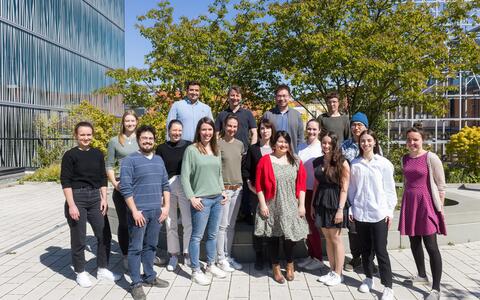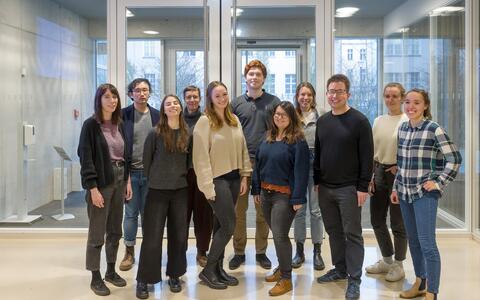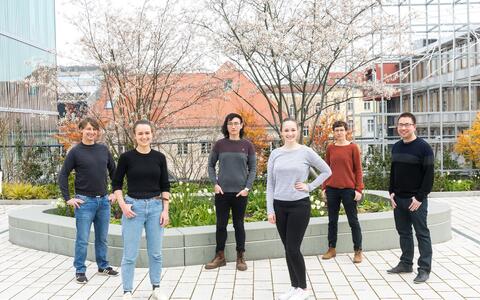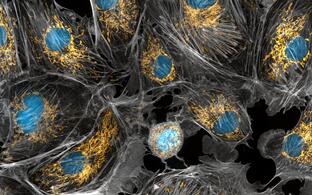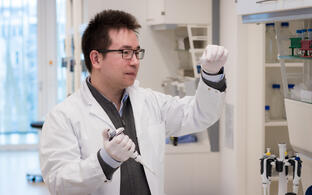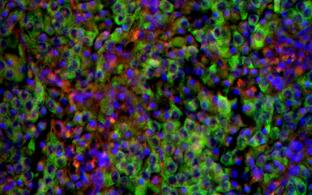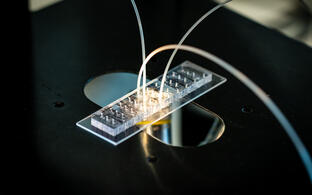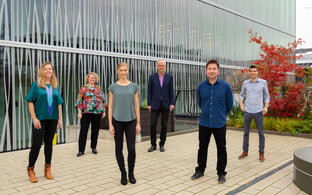
Ludwig Lab
Stem Cell Dynamics and Mitochondrial Genomics
Profile
In particular, we are interested in elucidating mechanisms relating to the activity, dynamics and regulation of hematopoietic stem cells. While hematopoiesis may present one of the best studied biological systems, it remains challenging to study the in vivo activity of individual stem cells in humans. To overcome this, we develop methods to detect naturally occurring sequence variation in the nuclear and mitochondrial genome. This allows us to study the unique mutational profiles of hematopoietic cells which we utilize as natural genetic barcodes to enable lineage tracing / assessment of clonal activity across the stem and progenitor cell pool. In conjunction with genomic readouts of cellular chromatin accessibility, gene and protein expression profiles, we aim to unravel fundamental principles of stem cell dynamics and (de-)regulation in health and disease states, including leukemia.
Moreover, an interrelated key objective of the group is to better understand how mitochondrial genotypes contribute to metabolic and cellular phenotypes in the context of congenital disorders, an aging immune system and more generally human biology.
The lab is part of the joint 'Single Cell Approaches for Personalized Medicine' Research Focus Area of the Berlin Institute of Health and the Max-Delbrück Center/Berlin Institute of Medical Systems Biology. We are affiliated with the clinical departments of Hematology, Oncology and Tumor Immunology at the Charité medical school and foster close collaborations with the clinical and biomedical research community.
Team
Research
Single-cell multi-omics methods
We have developed a range of single-cell-based technologies that enable the concomitant measurements of multiple modalities from the same cells to maximize the phenotypic depth of information for cellular profiling. For instance, we have combined high-throughput accessible chromatin profiling with whole mitochondrial genome sequencing for clonal tracing and the study of mitochondrial genetics (mitochondrial single-cell ATAC-seq, mtscATAC-seq). We further contributed to enabling the simultaneous profiling of surface marker and intracellular proteins (ATAC with Select Antigen Profiling by sequencing, ASAP-seq). We have integrated gene activity-based readouts from chromatin accessibility, mRNA expression and cellular proteins, thereby allowing to address the central aspects of gene regulation (DOGMA-seq). Together with computational approaches, these methods allow us to comprehensively study human genetics and biomedical questions in health and disease contexts.
- Related publications
-
Show all related publications ►
-
- Lareau CA*#, Ludwig LS*# et al. (2020) Massively parallel single-cell mitochondrial DNA genotyping and chromatin profiling. Nature Biotechnology. DOI: 10.1038/s41587-020-0645-6
- Mimitou EP*, Lareau CA*, Chen KY* et al. (2021) Scalable, multimodal profiling of chromatin accessibility, gene expression and protein levels in single cells. Nature Biotechnology (accepted in principle). Preprint DOI: 10.1101/2020.09.08.286914
- Fiskin E, Lareau CA, Ludwig LS et al. Single-cell multimodal profiling of proteins and chromatin accessibility using PHAGE-ATAC. Preprint DOI: 10.1101/2020.10.01.322420
*Equal contribution
#Co-corresponding author
Hematopoiesis & hematopoietic stem cell biology
A major focus of the lab is the study of hematopoiesis, a process that gives rise to a diverse repertoire consisting of millions of blood cells every second. Conceivably, this is a highly regulated process that is controlled by hematopoietic stem cell activity in the bone marrow. A number of recent studies suggests that the hematopoietic stem cell pool is highly heterogenous. By leveraging genomic sequence variation as natural genetic barcodes, we have previously demonstrated the utility of somatic mitochondrial mutations to resolve clonal processes in the human bone marrow at high resolution and scale. By combining single-cell multi-omic technologies with cell biological approaches and insights from clinical observations and human genetics, we aim to uncover fundamental mechanisms of hematopoietic stem cell biology, underlying clonal dynamics and its (dys-)regulation in diseases such as leukemia.
- Related publications
-
Show all related publications ►
-
- Ludwig LS*#, Lareau CA*, Ulirsch JC* et al. (2019) Lineage tracing in humans enabled by mitochondrial mutations and single cell genomics. Cell. DOI: 10.1016/j.cell.2019.01.022
- Ulirsch JC*, Lareau CA*, Bao EL*, Ludwig LS et al. (2019) Interrogation of human hematopoiesis at single-cell and single-variant resolution. Nature Genetics. DOI: 10.1038/s41588-019-0362-6
- Khajuria RK, Munschauer M*, Ulirsch JC*, Fiorini C*, Ludwig LS* et al. (2018) Ribosome levels selectively regulate translation and lineage commitment in human hematopoiesis. Cell. DOI: 10.1016/j.cell.2018.02.036
*Equal contribution
#Co-corresponding author
Mitochondrial genetics and genomics
Mitochondria play a central role in metabolism and are unique organelles that carry their own genome, encoding a subset of proteins, tRNAs and ribosomal RNAs essential to their function. Critically, mutations in the mitochondrial genome are associated with a multitude of congenital disorders and clinical phenotypes. Recently, we have shown that single-cell genomic approaches can be effectively used to study such disorders and, more generally, mechanisms of mitochondrial genetics that are characterized by high mitochondrial DNA copy number and unique modes of replication/inheritance. Moreover, we have demonstrated the high prevalence of somatic mitochondrial DNA mutations that may contribute to a series of human phenotypes. Using cell biological, single-cell multi-omics and computational approaches, we aim to advance our understanding of the pleiotropic function of the mitochondrial genome in shaping human and cellular phenotypes.
- Related publications
-
Show all related publications ►
-
- Walker MA*, Lareau CA*, Ludwig LS* et al. (2020) Purifying selection against pathogenic mitochondrial DNA in T cells. New England Journal of Medicine. DOI: 10.1056/NEJMoa2001265
- Lareau CA*#, Ludwig LS*# et al. (2020) Massively parallel single-cell mitochondrial DNA genotyping and chromatin profiling. Nature Biotechnology. DOI: 10.1038/s41587-020-0645-6
- Ludwig LS*#, Lareau CA*, Ulirsch JC* et al. (2019) Lineage tracing in humans enabled by mitochondrial mutations and single cell genomics. Cell. DOI: 10.1016/j.cell.2019.01.022
*Equal contribution
#Co-corresponding author


















